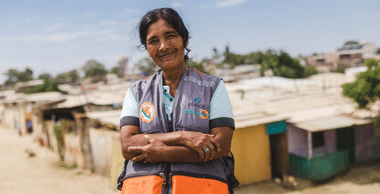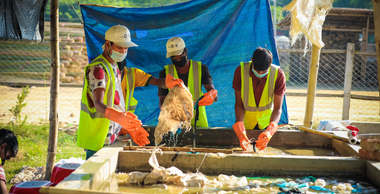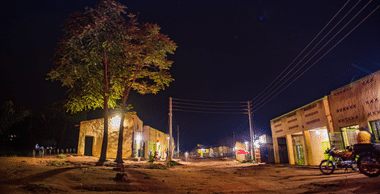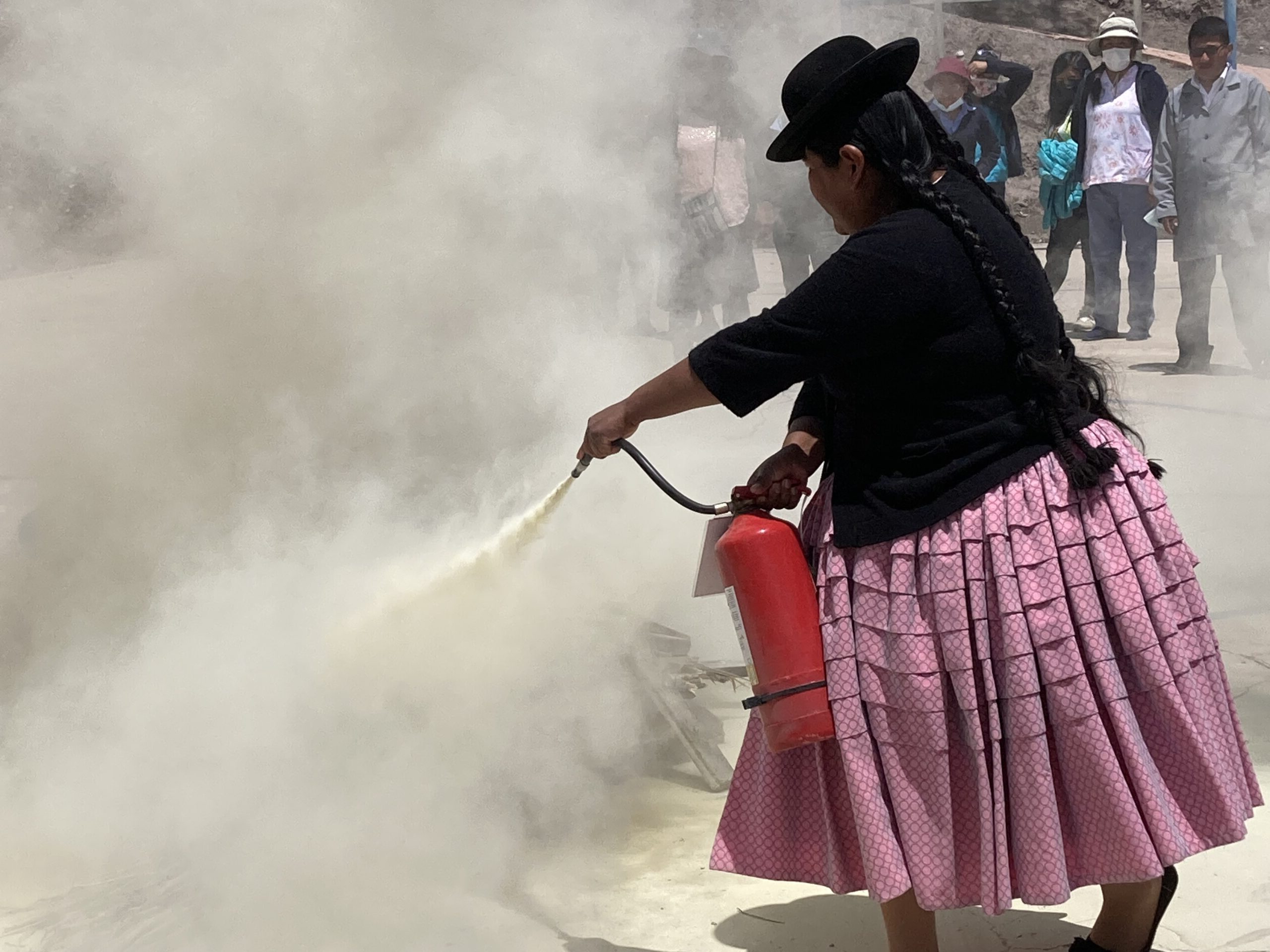Our Aims
Our ultimate goal is a world that works better for everyone.
A world where smallholder farmers can earn a decent living while working in harmony with the environment. Where parents can cook nutritious family meals without risking their health. And where businesses, schools and clinics have the electricity they need to help their communities succeed.
We’re working towards a world where people in slum communities and refugee camps live in safety and dignity. Women entrepreneurs have the confidence and the skills to build profitable businesses. And people on the front line of climate change can adapt to the challenges of extreme weather and thrive.
The communities we work with face significant challenges. The effects of climate change, environmental degradation, and the ongoing pandemic make this a critical time. But we see the opportunities for positive change and we know that our goals are not only achievable, but have never been more relevant.
For people
We’ll improve lives and futures
Our work remains grounded in the realities of people living in poverty. Our starting point will always be focused and ‘small’ – building a deep understanding of what already works at a local level, and what could be improved.
We work with local communities, especially women and marginalised people, empowering them to unlock their potential and improve their lives, livelihoods and futures.
For the planet
We’ll respect nature’s boundaries
Our development approaches are designed to work with and for the environment. The natural resources that many communities rely on are increasingly under threat.
Wherever possible our solutions are planet friendly, deploy renewable resources, and reuse resources in innovative ways. Because we know that it’s possible to design solutions that benefit both people and the planet.
For big change
We’ll collaborate to change systems
We might start small, but we’ll always think ‘big’, analysing the factors that can change the underlying systems and identifying where we are best placed to effect change.
We then convene and collaborate more widely – with governments, international organisations, and increasingly the private sector – to help take proven solutions to the next level of scale and sustainability.
By 2025 our work with partners will have improved the lives of 6 million people living in, or vulnerable to poverty. We will contribute to nine of the 17 Sustainable Development Goals. Our work on systems change will have positively impacted a further 20 million people.
Our Four Key Aims
Agriculture
Farming that works
We refuse to believe the only future for food production is an agricultural system that destroys the planet and keeps farmers trapped in poverty.
We promote the use of agroecology with the aim of:
- Increasing farming and food production that values people and planet
- Offering a long-term, sustainable alternative to intensive agriculture
- Transforming the lives of millions of farming families struggling to adapt to a changing climate
Electricity and clean cooking
Energy that transforms
We do not accept that millions of us may not gain access to affordable electricity or clean cooking for at least another generation – if at all.
We’re bringing rural communities, displaced people, energy providers and decision makers together to find sustainable, clean energy solutions so that:
- People can access electricity that could improve their health, education and livelihoods
- Commercial providers of mini-grids, biogas and solar systems can reach poor and remote communities
- Cleaner cooking stoves and fuels reduces harmful smoke inhalation
Water and waste management
Cities fit for people
We challenge the idea that poor people in cities and refugee camps should have to live in squalor.
We’re helping to make cities in developing countries cleaner, healthier and fairer places for people to live and work. We aim to:
- Increase people’s access to safe water for drinking and washing
- Support communities to safely and sustainably contain, collect and process waste
- Work with informal waste workers so they can work in safety and dignity
Climate change and disasters
Resilience that protects
We’re appalled by the fact that the people who pollute the least are the most affected by climate change.
We’ll continue working with communities to make climate resilience a way of life so that:
- People on the front line of climate change can adapt to changing conditions
- Systems are put in place to predict disasters so people can make plans to minimise their impact
- Environmentally sound technologies promote low carbon and climate resilient development
Tackling the world’s biggest problems
We help people find solutions to some of the world’s toughest problems – made worse by underdeveloped market systems, catastrophic climate change and persistent gender inequality. Explore more of our work in these areas below.



